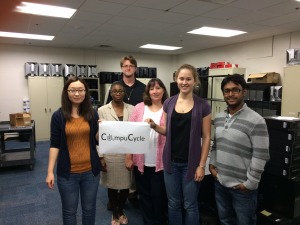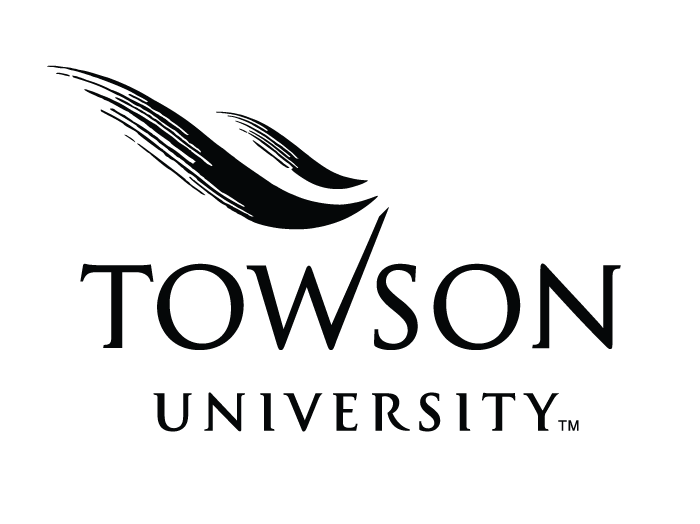Not long ago, the university’s technologically obsolete computers went from classrooms, offices and labs straight to landfills. Now, thanks to a campus-wide collaboration spearheaded by TU’s Office of Technology Services (OTS), once-obsolete desktops, laptops, tablets and other electronic devices have an extended life on campus and beyond.
Michael Bachman, director of Information Technology Client Services, OTS, says many TU departments participated in creating the recently launched CompuCycle program.
“A lot of people contributed time, resources, space and ideas to the effort,” Bachman says. “They understood that it was a good investment for not only the university, but for everyone involved.”
Bachman cites Joe Oster, vice president for Administration and Finance, and Jeff Schmidt, associate vice president of OTS, as being particularly helpful and supportive.
So far the program has repurposed 212 computers on campus. Another 206 decommissioned computers—obsolete by TU standards but still quite useable—have been deployed to Baltimore County public schools.
Here’s how CompuCycle works: When a TU-owned computer reaches the end of its instructional life, it’s decommissioned and transferred to Compucycle, headquartered in Cook Library. Under the direction of OTS staffers Julie Leary and Mike Scribner, student employees and volunteers from TU’s Hussman Center for Adults with Autism add a new solid-state hard drive (128GB), memory (4BGB) and a new keyboard and mouse.
CompuCycle then makes these computers available to students, faculty and staff for on-campus use. (The program is open only to those who can’t acquire computers through existing budget channels.) Possible uses for Compucycle’s reconditioned computers include student projects, research and/or study; student groups and organizations with on-campus offices; special populations such as adjuncts, graduate and research assistants, student employees and volunteers; self-support departments, office and institutes; and many more. There is no cost to recipients.
“The program also offers a great opportunity for volunteers to learn how to recondition computers,” Bachman says. “We’re looking for TU student-group volunteers as well as high-school students who’d like to help out and gain valuable skills in the process.”
Leary says faculty and staff members may qualify for a CompuCycle computer if they’re not yet eligible for TU’s Trade Up Program. A list of available computers is updated weekly and posted to the program’s website. Leary encourages anyone who’s interested to visit the site to evaluate whether or not an upgrade is worthwhile. Requests involve completing a spreadsheet and attaching it to an OTS TechHelp form.
Mike Bachman says CompuCycle garnered unexpected praise from the CEO of VuePoint Connect during a national conference last month in Portland, Oregon. John Varvarigos approached Bachman to say TU “had all the right boxes checked,” including financials, collaboration, partnerships, providing skill training for populations with challenges and enabling students to gain experience.”
Varvarigos added that the program “might be something that could be scaled up—even to the point of providing computers to developing countries.”

